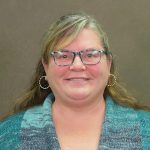Accountant A.A.S. Degree
Career Description
The CLC accounting program is versatile and allow graduates to pursue many different career paths. Regardless of the geographic location or population size where you want to live and work, there will be an employer who needs an accountant or at least the skill sets of an accountant. Accounting graduates can work almost anywhere. Accountants are vital in the management of every company or organization. Accountants prepare and compile journal entries to record financial transactions and payroll, communicate and summarize the current financial condition of the company using financial statements and other reports including budget analysis, prepare income tax returns and calculations, and perform accounting responsibilities and duties electronically using computerized accounting software and spreadsheet programs.
Program Information
Central Lakes College offers a variety of accounting degree options that prepare the student for employment upon graduation. The two-year Accountant Associate in Applied Science (A.A.S.) degree may be completed in as little as four semesters. The Accountant Diploma may be completed in two semesters. The Bookkeeping Certificate may be completed in a minimum of two semesters. The Bookkeeping Certificate is the ideal add-on degree for an Associate of Arts (A.A.) student who plans to transfer to a four-year university, or as an individual certificate. Flexible program options allow students to complete the program in a way that best fits their needs and life, including taking classes on a part-time basis. Classes are offered online, in the classroom, hybrid, and LiveOnline. Central Lakes College accounting degrees prepare students for entry level positions in accounting, banking, business, or finance by teaching the necessary analytical and technical skills.
Program Outcomes
Graduates will be able to:
- Complete the accounting cycle, and prepare classified general purpose financial statements in good form
- Possess the tools needed to analyze financial and business information that support planning and decision making
- Apply accounting principles to business transactions in both a manual and a computerized environment
-
Demonstrate a fundamental understanding of employment laws, earnings calculations, payroll tax compliance, and records maintenance
- Prepare federal and state individual tax forms with accompanying schedules in proper form
- Measure and prepare financial and non-financial information used to support strategic managment and internal decision making
- Apply ethical principles in decision making
- Demonstrate effective communication skills
Special Program Requirements
In addition to the program requirements, students must meet the following conditions in order to graduate:
- College Cumulative GPA Requirement: The cumulative grade point average (GPA) of credits attempted and completed at CLC must be at least 2.0;
- College Technical Core GPA Requirement: The cumulative GPA of credits attempted and completed towards the technical core of the diploma or degree must be at least 2.0;
- Residency Requirement: students must complete one third (20) of their credits at Central Lakes College; and
- Accounting courses in the program must be completed within seven (7) years.
Certification
Upon completion of the Computerized Accounting Software course at CLC students are prepared to complete QuickBooks Certified User (QBCU) exam. The QBCU credential validates the skills and knowledge the accountant. A Certified Bookkeeper exam is offered by the American Institute of Professional Bookkeepers. This exam covers normal accounting practices of the typical business, and may be taken after completing a 2-year Accounting Degree. The Fundamental Payroll Certification (FPC) and Certified Payroll Professional (CPP) are two payroll certifications that 2-year accounting graduates may pursue. The FPC has no experience requirement, and the CPP exam’s minimum employment requirement rages from 18 months to three years, depending on which eligibility criteria option is chosen. The State of Minnesota offers two levels of licensure for Accountants. The Registered Accounting Practitioner (RAP) certification requires a 2-year Accounting Degree and authorizes the licensee to perform but not supervise all accounting services on a formal audit. To sit for the CPA exam a candidate must have at least a bachelor’s degree and meet the specific education requirements set forth by the Minnesota State Board of Accountancy. Once the CPA exam has been passed, additional licensing requirements must be met in order to receive a CPA license in Minnesota. Licensing requirements include, but are not limited to, an educational requirement of 150 semester credit hours, work experience supervised by a current CPA, and completion of ethics exam.
Transfer Opportunities
Students planning to pursue a bachelor’s degree in accounting are strongly encouraged to consult with Accounting faculty and an Advisor about transfer opportunities for specific four-year colleges.
Employment Statistics
For more information regarding employment statistics, career salary information and estimated job growth, follow the resource links below:
https://apps.deed.state.mn.us/lmi/ces/
http://www.bls.gov/ooh/home.htm
Salary information from indeed.com
Program Course Requirements
Required Discipline Courses (45 Credits)
ACCT 2011 Accounting Principles I, 4 cr
ACCT 2012* Accounting Principles II, 4 cr
ACCT 2114 Payroll Accounting, 3 cr
ACCT 2121* Intermediate Accounting I, 4 cr
ACCT 2123* Intermediate Accounting II, 4 cr
ACCT 2137* Accounting for Governmental and Not-for-Profit Entities, 3 cr
ACCT 2138* Computerized Accounting Software,3 cr
ACCT 2140 Accounting Applications, 3 cr
ACCT 2161* Cost Accounting I, 3 cr
ACCT 2165* Income Tax, 4 cr
ACCT 2170* Federal & State Tax Updates, 1 cr
BUSN 1131 Business Math, 2 cr
BUSN 1132 Workplace Skills and Professionalism, 1 cr
BUSN 1166 Business Communications, 3 cr
Additional related credits (choose from the following) 3 cr
ACCT 2350** Accounting Internship OR
BUSN 2111 Management Principles OR
BUSN 2114 Human Resource Principles OR
BUSN 2130 Legal Environment of Business OR
COMP 1120 Introduction to Computer Applicants
Required MnTC Courses (15 Credits)
An A.A.S. degree requires a minimum of 15 credits selected from at least three of the ten goal areas of the Minnesota Transfer Curriculum (MnTC).
Minnesota Transfer Curriculum courses15 cr
GRADUATION REQUIREMENT – 60 CREDITS
*Denotes Prerequisites
**Requires permission by Instructor
Program Instructors
| Photo | First Name | Last Name | Position | Department | Phone | Alt. Phone: | URL | wdt_ID | Details | |
|---|---|---|---|---|---|---|---|---|---|---|
 |
Aubrey | Beadell | Advisor | TRIOStudentSupportServices | (218) 855-8014 | aubrey.beadell@clcmn.edu | 1 | More details | ||
 |
Nick | O'Reilly | Occupational Skills Program College Lab Assistant | OccupationalSkills | 218-855-8077 | Nicholas.oreilly@clcmn.edu | 2 | More details | ||
 |
Kevin | Lomax | College Lab Assistant | Automotive Faculty | 218-855-8000 | KLomax@clcmn.edu | 3 | More details | ||
 |
Jody | Flynn | Accessibility Services Assistant | Accessibility | 218-855-8056 | jody.flynn@clcmn.edu | 5 | More details | ||
 |
Deana | Bobzien | Instructor | CollegeCareerStudies - Mathematics - Supportive Services | 218-855-8339 | deana.bobzien@clcmn.edu | 7 | More details | ||
 |
Brianna | Rajkowski | Advisor | TRIOStudentSupportServices | 218-855-8228 | brianna.rajkowski@clcmn.edu | 8 | More details | ||
 |
Cynthia | Dionysius | AD Nursing Faculty | NursingASDegree | 218-855-8133 | cindy.dionysius@clcmn.edu | 9 | More details | ||
 |
Tajia | Anderson | PSEO Specialist | Admissions - CollegeCreditInHighSchool- PSEO | (218) 855-8079 | tajia.anderson@clcmn.edu | 10 | More details | ||
 |
David | Gray | Instructor | History | 218-855-8276 | david.gray@clcmn.edu | 14 | More details | ||
 |
Jim | Nagy | Adjunct Instructor | GraphicDesign | 218-855-8157 | james.nagy@clcmn.edu | 15 | More details | ||
 |
Brandon | Schneider | Instructor | HeavyEquipment | 218-894-5179 | brandon.schneider@clcmn.edu | 16 | More details | ||
 |
Natalia | DePauw | Director of Dual Enrollment | Advising - PSEO - CollegeCreditInHighSchool | 218-855-8263 | natalia.depauw@clcmn.edu | 18 | More details | ||
| Amy | Disterhaupt | Admissions Specialist | Admissions | 218-855-8250 | amy.disterhaupt@clcmn.edu | 20 | More details | |||
 |
Nick | Heisserer | Dean of Brainerd Career & Technical Programs | Administration | 218-855-8067 | nick.heisserer@clcmn.edu | 21 | More details | ||
 |
Matthew | Krueger | Environmental Health and Safety Officer | Maintenance - Security - Safety | 218-855-8115 | matthew.krueger@clcmn.edu | 22 | More details | ||
 |
Mark | Lindquist | Instructor | Music | 218-855-8203 | mark.lindquist@clcmn.edu | 23 | More details | ||
 |
Jeremy | Goddard | Bookstore/Print Shop | Bookstore Supportive Services | 218-855-8146 | Jeremy.Goddard@clcmn.edu | 25 | More details | ||
 |
Sarah | Jennissen | Instsructor | NursingAssistant - PracticalNursing - TrainedMedicationAid | 218-894-5308 | sarah.jennissen@clcmn.edu | 26 | More details | ||
 |
Cash | Robinson | Academic Advisor | TRIOUpwardBound - Advising | 218-855-8035 | cash.robinson@clcmn.edu | 28 | More details | ||
 |
Ryan | Wright | Enrollment Representative | Admissions - CampusTours | 218-855-8013 | ryan.wright@clcmn.edu | 31 | More details | ||
 |
Steve | Wenzel | Instructor | PoliticalScience | 218-855-8073 | stephen.wenzel@clcmn.edu | 32 | More details | ||
 |
Julie | Woitalla | Instructor | NursingASDegree - PracticalNursing | 218-855-8168 | julie.woitalla@clcmn.edu | 33 | More details | ||
 |
Josh | Zaborowski | Upward Bound Advisor | TRIOUpwardBound - Assessment | 218-855-8032 | joshua.zaborowski@clcmn.edu | 35 | More details | ||
 |
Paul | Zimmerman | Instructor | Diesel Faculty | 218-894-5143 | paul.zimmerman@clcmn.edu | 36 | More details | ||
 |
Ed | Uhlenkamp | Instructor | FarmBusinessManagement | 218-894-5160 | edward.uhlenkamp@clcmn.edu | https://dynamicforms.ngwebsolutions.com/ShowForm.aspx?RequestedDynamicFormTemplate=32c40b45-028c-46d6-9f79-9c1edc503713 | 38 | More details |
Photo:
First Name:
Last Name:
Position:
Phone:
Email:
